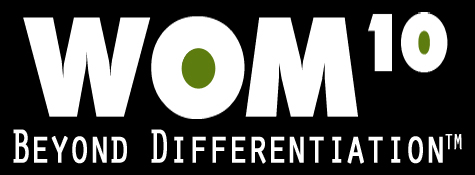I just read an article and felt compelled to share some thoughts about it since it was using some new “language” to describe some well known problems with management. The article was titled, “Culture Shift: The Causes and Cures of Collective Amnesia” and was written by Paul Levesque. It was posted on the Manage Smarter website for those of you wondering where it came from.
Paul used some interesting language to describe some all too common issues in management, namely losing focus on what is important in both the short and long term. Let me give you an excerpt from the article that will help you understand what he is saying. “When a new business is launched, it’s on a mission to fill some need in the market. All businesses begin with this kind of external focus. Everyone on staff knows what’s important. But, sooner or later, problems begin to arise. New competition emerges, key suppliers start dropping the ball or customer preferences take an unexpected turn—and suddenly the numbers aren’t looking so good. In response to the potential threat, everyone’s attention turns inward. Gradually the well-being of the organization begins commanding more attention than the well-being of customers in the marketplace. A downward spiral has begun. Customers feel neglected and gradually begin to defect, which worsens the numbers, increases the severity of the threat and subsequently intensifies the distraction from the organization’s original mission.”
He is describing a situation that occurs in many organizations we see and talk with as well – losing sight of the original mission and being distracted, usually to the detriment of the customer. People get distracted easily and if management isn’t there to keep the ship on course and continue steering it in the original and right direction, the employees will get caught up in the distractions and lose focus on what is important. Granted, the competitive landscape is tougher than ever these days and companies have to be flexible and observant to notice these changes as they occur. This doesn’t mean you forget about the environment and stay the course no matter what, but does mean that you have to continually evaluate outside information to make course corrections where necessary. Too often companies continually abort their original, well thought out plans because they see others going in a different direction – not sound business management.
What we believe is the stronger way to assess new information is to go direct to the source – YOUR CUSTOMERS! Develop a program that allows you to get the “right” information at the “right” time to make the “right” decisions about making any changes. Your original course and mission was (or should have been) well thought out with lots of input from trusted advisors, your management team, employees and customers. To change off this course, the new input has to be very good and and valid or you should stick with your original design. If you are linked to your customers in a way that gives you “real time” information on a “regular” basis, you don’t have to worry, you have input from the one group that “writes you checks” all the time – and to us, that’s pretty good information.
One final excerpt from Paul’s article that will drive home my point about distractions and staying focused. “Threats and distractions are fundamental leadership issues. And leaders who get everyone involved in the mechanics of deflecting or resolving threats are making a critical mistake. This simply intensifies the internal focus and the anxiety, giving everyone official permission to forget about customers “until this crisis blows over.” The reality of organizational life is that threats and crises never blow over. Once employees begin thinking of their main responsibility as “putting out fires,” they may never go back to seeing their overarching mission as “filling customer needs.” Not, that is, unless the leadership keeps reminding them about it. That’s the real cure for collective amnesia: constantly place everything that happens within its larger context, so that the ultimate mission is never forgotten.“
I really appreciated the “new language” from Paul around “Amnesia” and think this is an appropriate way to categorize much of what we see today as well. Thanks Paul for helping all of us think about an old issue in a different way that brings back its importance and value to the organization and the customer.
Blaine Millet
